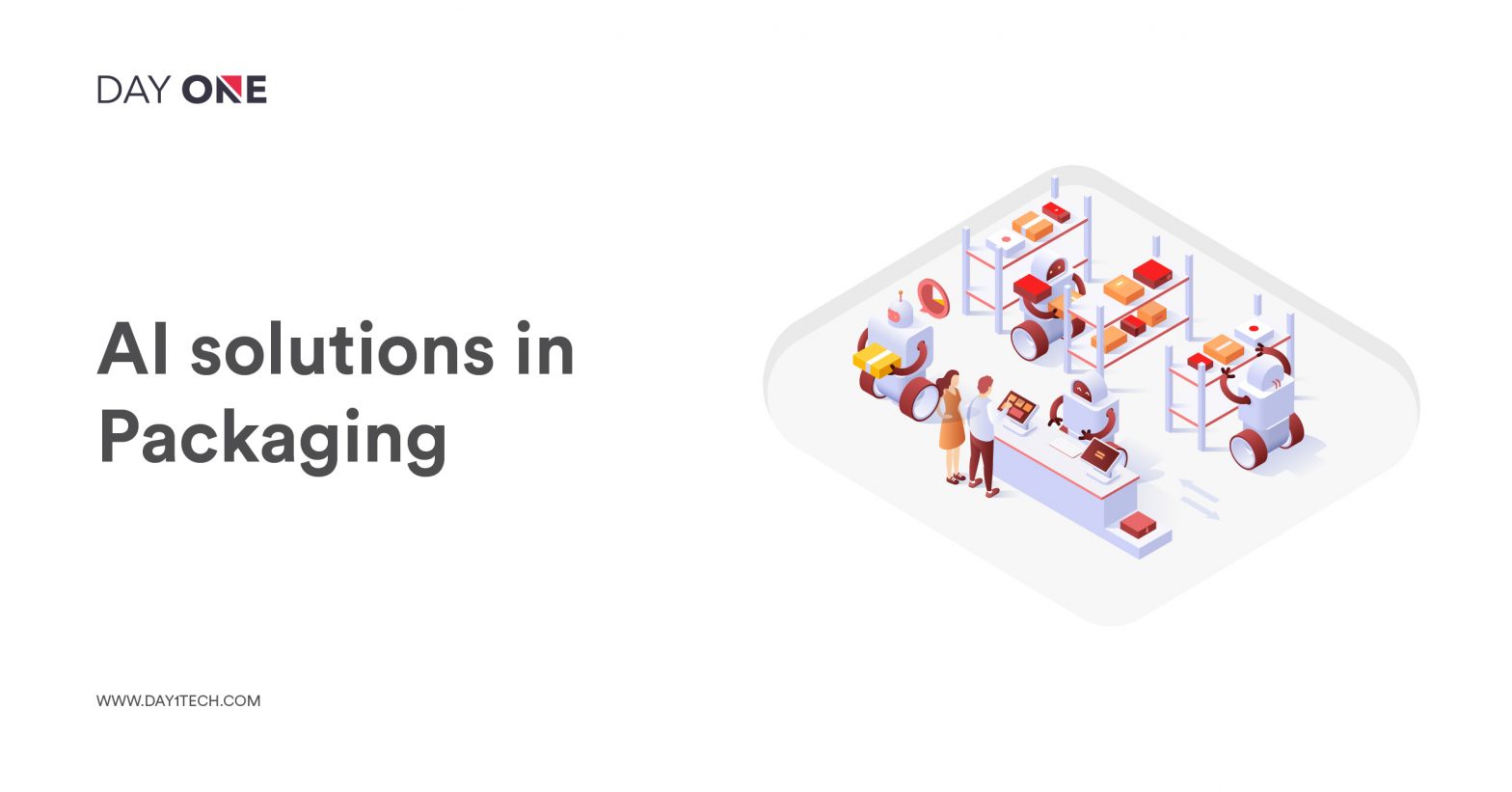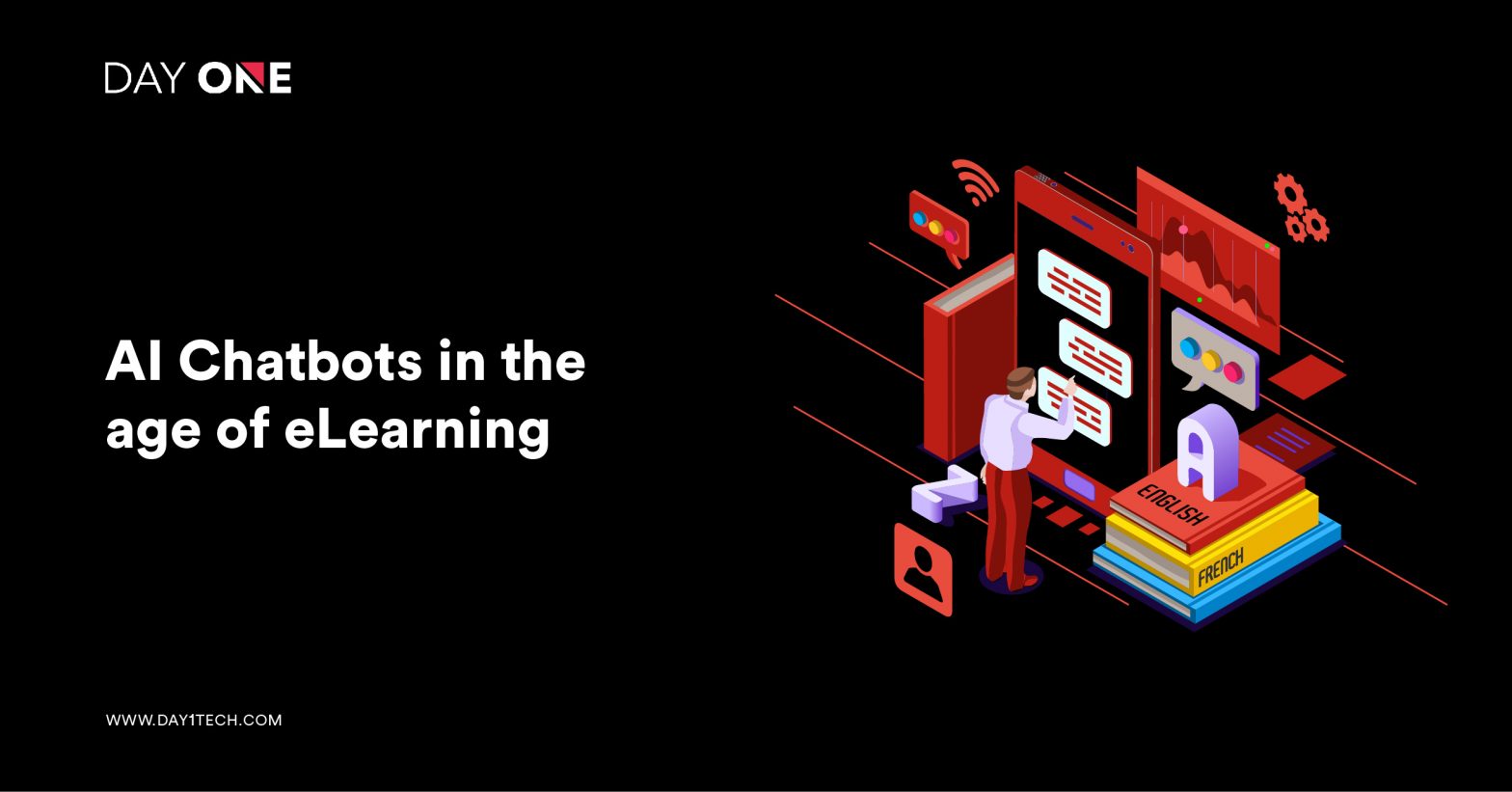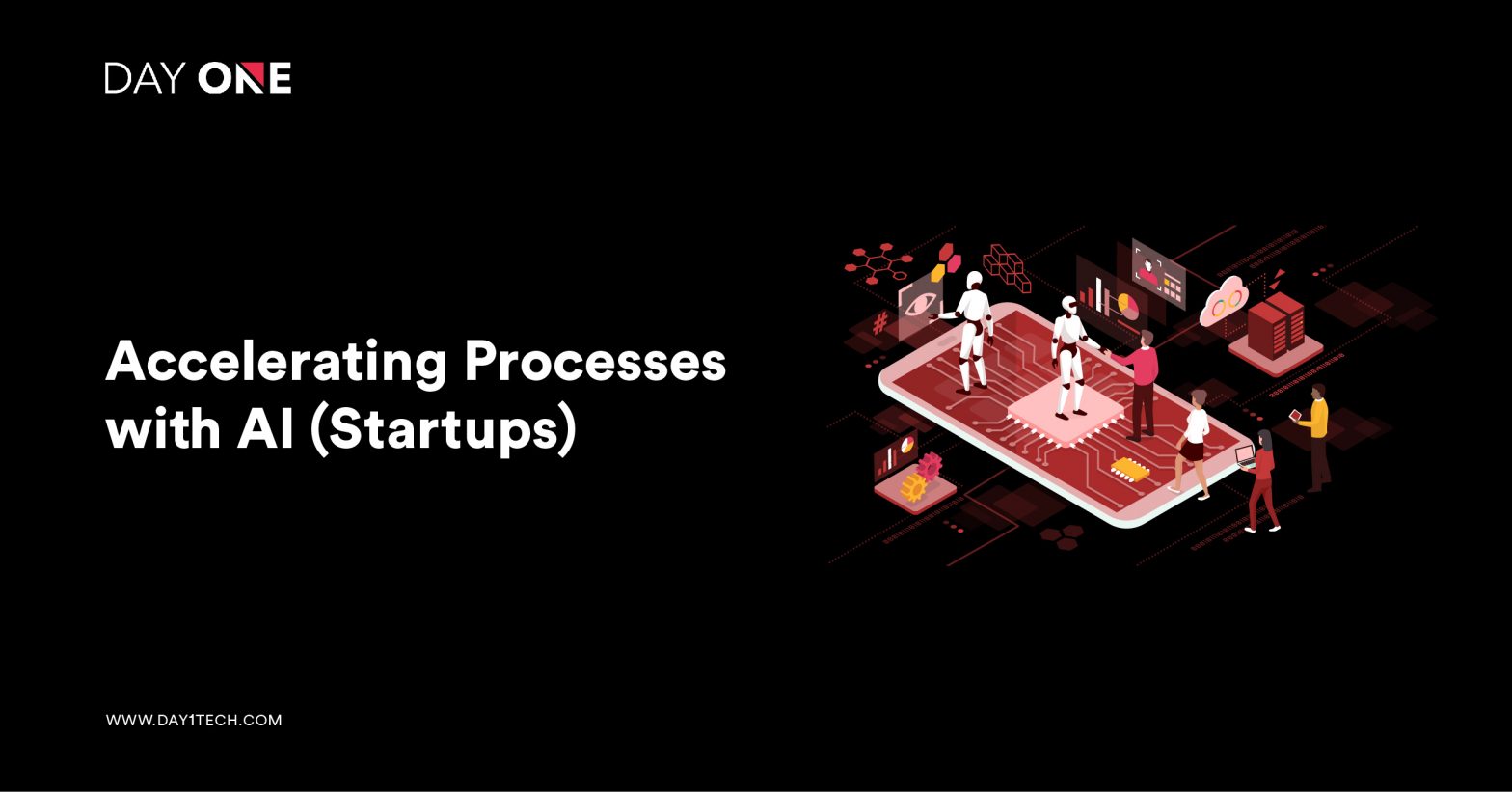AI in Packaging: Smart Solutions for the Future
admin
Artificial Intelligence
June 3, 2021
5 min read

We are talking about a very advanced and smart world here. A world of cognitive technologies and robotics automation that are disruptive and transformative in nature. Artificial intelligence and Robotic Process Automation have seamlessly sealed its position across several global industries and packaging is no different. The growth in the use of Artificial Intelligence in packaging and distribution is no less fascinating considering it is a key component and contributor to the rise in smart warehouses.
Of course, globalization and the growth in global trade has demanded warehouses and distribution channels to work faster and smoother. And Artificial Intelligence has proven to be a reliable and effective tech to lead the way. Increased demand for cartons, consumer goods, flexible packaging are some of the key drivers for the packaging industry to onboard AI. Today it is all about businesses having competitive advantage over others, and with AI and Machine Learning, scaling operations is less risky and more effective.
With AI making delivering more at every given point, the number of industry specific use cases in AI is also increasing. Adoption today is no longer a choice but a necessity.
How is Artificial Intelligence transforming the packaging industry:
Sorting Recycled Goods:
When we talk about applying AI services in the packaging industry, sorting recycled goods is barely a use that crops up first in our minds, however, it is a perfect fit. With the amount of waste that gets accumulated and ends up at oceans every day, we need to upscale our recycling efforts by a huge margin. Sorting goods is essential for ensuring recycled products and byproducts can be used effectively. However, it is a repetitive, laborious and time-consuming job that offers low value to humans. Using Artificial Intelligence and robotics for this purpose would provide for a perfect fit.
With the dawn of intelligent automation upon us, robots are being equipped with artificial intelligence to do such activities. They are faster, more efficient and can work more hours a day (in this case, up to 16 hours!).
In a game-changing initiative in the use of AI in the food packaging sector, the Carlton Council of North America and AMP Robotics have come together to combine the power of Artificial Intelligence and robotics to create a robot that helps in the sorting process of the cartons, plastic bottles, and containers by the name of Clarke.
In North America, once the recyclable materials are collected they are taken to a materials recovery facility (MRF). At the MRF the materials are sorted and baled, before being sent to other facilities for making other recycled material.
This is where Clarke comes in. Clarke, a robot uses a camera to scan materials and as it scans more materials the AI technology keeps learning on which materials and cartons to recycle and which ones to not. At present Clarke can identify 150 types of cartons and uses spider-like grippers to pick up cartons. Clarke can pick 60 times in a minute in comparison to 40 times by an average human worker and works up to 16 hours a day.
Date Labeling:
If we look into how Machine Learning is used in business processes, it is not difficult to understand that it can be a game changer by providing accurate data, analysis and insights on processes. The packaging industry too has benefited from adopting Machine Learning but in its own way.
By implementing Machine Learning in processes like date labeling, organizations not only benefit from better-standardized procedures but also save themselves from customer dissatisfaction.
Incorrectly labeled products can lead to inspection failures, customer dissatisfaction and even potentially cost businesses their hard-earned profits. Using Machine Learning in the packaging industry date labeling can become a norm, ensuring lesser manual errors and greater efficiencies in processes.
For instance, OAL, Tesco, and the University of Lincoln have joined hands and are developing packaging machinery powered by an AI system. To build the system, a deep neural network would be trained to extract features of the images, classify the features and factor in variations. Machine Learning will be used to verify date label codes. In case of a mismatch, the system will shut down the line before it would even be sent out.
AI-powered Vision Systems for Inspection:
AI can further assist with smarter inspection of goods, to ensure that shipments are accurate with respect to what is being delivered, to whom and in what quantity. The use of AI powered tools like AI-powered vision systems can perform quality inspection, classification, and real-time tracking, ensuring human error remains minimal.
Quality inspection is an important part of the packaging industry and machine vision systems can detect and identify anomalies. However, it does not have the capacity to learn by itself, so depending on which object is passing inspection the systems have to be reprogrammed. With the ability to give real-time status of inventory, the supply chain can be optimized. With real-time tracking available, related operations can also be optimized leading to overall efficiency in business operations.
In possibly one of the best case studies of how AI has impacted the packaging industry, the case of a client of Packaging Distributors of America (PDA) who owned a lighting systems company and was facing immense difficulties could be narrated. The company witnessed a striking 75% customer complaint rate which was steadily on the rise. Oftentimes, customers received packages with missing parts. In such a situation, PDA installed AI-powered cameras in the client’s packaging equipment. The cameras used machine learning methods to understand what contents go into which box. The results were incredible! Customer complaints came to a stop and reduced from 75% to 0% within the blink of an eye.
Artificial Intelligence for warehouse automation:
AI-powered smart warehouses are a revolutionary concept today and a game-changer in several sectors. There is close integration between deep technology and while on the one hand it has brought about tremendous operational improvements, it has also helped businesses in keeping their money in check. The demand has urged several RPA bot vendors to focus their efforts acutely on the manufacturing sector, especially the benefits it can add to packing.
When it comes to warehouse management, it is a complex process and comes with its unique set of challenges. There is close interlinking between warehouse systems and automation – the more streamlined and connected it is to other devices and processes, the better are the results. Smart warehouses are warehouses powered by the Internet of Things (IoT), Artificial Intelligence and other smart technologies such as Radio Frequency Identification (RFID) which integrate data from various sources throughout the warehouse to improve and optimize processes by themselves without any need for programming or human intervention.
For modern AI and smart warehousing systems, packaging is a key player. AI tools can collect data from all data points and use it for recommending packaging updates. For example, according to the Tetra Pack Index survey (2018), consumers in the U.S. (74%) and South Korea (80%) said that for the wellbeing of the environment, they would avoid goods wrapped in multiple layers. This calls for re-visiting packaging customs and looking at alternatives to meet consumer sensitivity and needs.
Packaging and AI
Artificial Intelligence has enormous potential to deliver transformative experiences to the packaging industry. With AI being implemented in wider processes in the packaging industry, it is likely to expect the technology leaving its mark across the entire supply chain.
As one of the top AI solutions provider we envision that we are only getting a miniscule glimpse of how Artificial Intelligence can be the future of packaging. It should however be remembered that machines exist to assist man, and not altogether replace man. So, while errors can be minimized and processes can be streamlined, the future belongs to the collaborative efforts of man and machine working together.
Explore More Blogs
Testimonials What customers have to talk about us
Finch (previously Trio) – Growth with Investing, with benefits of Checking
Reading Time: < 1 minThe Finch (previously Trio), one of our clients today has reached this level with our expertise and with a great team of developers in Day One, who have made every stone unturned in making this project a big success.
Neel Ganu Founder
USA
Vere360 – VR based Immersive Learning
Reading Time: < 1 minDay One helped Vere360 “fill skill gaps” and build a platform that would cater to their niche and diverse audience while seamlessly integrate the best of #AI and #VR technology.
Ms. Adila Sayyed Co-Founder
Singapore
1TAM – Video Blogging Reimagined
Reading Time: < 1 min‘1TAM’ was only for iOS with gesture-based controls, advanced video compression techniques, and a simple architecture that allowed actions to be completed in 2-3 taps. The real challenge for ‘1TAM’ was to keep it distinct which bought brilliant results with all the strategies and approaches implied for best video compression techniques.
Anwar Nusseibeh Founder
UAE
Fit For Work – The Science of Workplace Ergonomics
Reading Time: < 1 minDay One Technologies came with the expertise that was required and helped in building a platform that is edgy, functional, and smart, delivering engagement and conversions at every step.
Ms. Georgina Hannigan Founder
Singapore
SOS Method Meditation for ‘Busy Minds’
Reading Time: < 1 minDay One Technologies helped in building an innovative mobile app (for #iOS and #Android) that’s easy-to-use, engaging, and data-driven to help users reap the most at every point.






